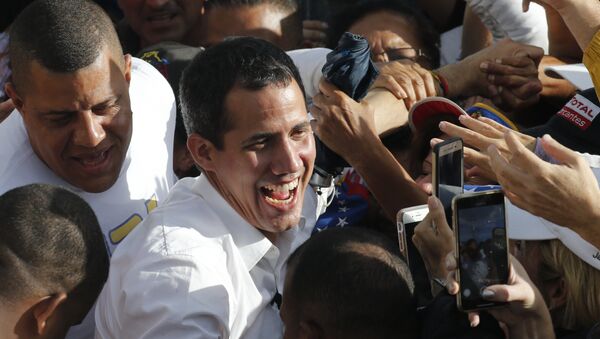"We hope that the regime makes the calculation, particularly after this trip, that the support for Guaido is strong and that the counter-reaction to any move against him would make it a mistake for the regime," Abrams told reporters.
After attending the State of the Union address as a guest of honor on Tuesday, Guaido met personally with US President Donald Trump after being snubbed at the Davos Economic Forum last month. Since January 2019, Guaido, who was then head of Venezuela's National Assembly, has claimed to be the country's interim president, denouncing Venezuelan President Nicolas Maduro's May 2018 election victory as fraudulent. While about 53 countries recognize Guaido's claim to power as legitimate, the remaining three-quarters of the globe has continued to do business with Maduro.
Guaido's term as speaker ended at the start of the year, when he was not reelected.
Since January 2019, Guaido has launched multiple attempted coups d'etat, all of which have failed. The US has instituted crushing economic sanctions on Venezuela in an attempt to pressure ordinary Veneuzelans into backing Guaido's bid for power, or otherwise turning against Maduro.
Abrams further blasted the "cruel and indefensible" arrest of several executives of Citgo, the US subsidiary of Venezuelan state-owned oil company PDVSA, after having previously been placed under house arrest. Shortly after Guaido's bid for power began, Washington moved to redirect Citgo's roughly $7 billion in annual profits away from Venezuela and into Guaido's coffers, with Guaido declaring in March he had "control over Citgo ... and a license to continue the company's activities," Sputnik reported.
The special envoy also noted the Russian government could face consequences for its continued support of Maduro. Moscow has provided Caracas with much-needed medical aid since sanctions began, and in March 2019, Veneuzela moved PDVSA's European headquarters from Lisbon, Portugal, to Moscow, where it felt they would be more secure.


